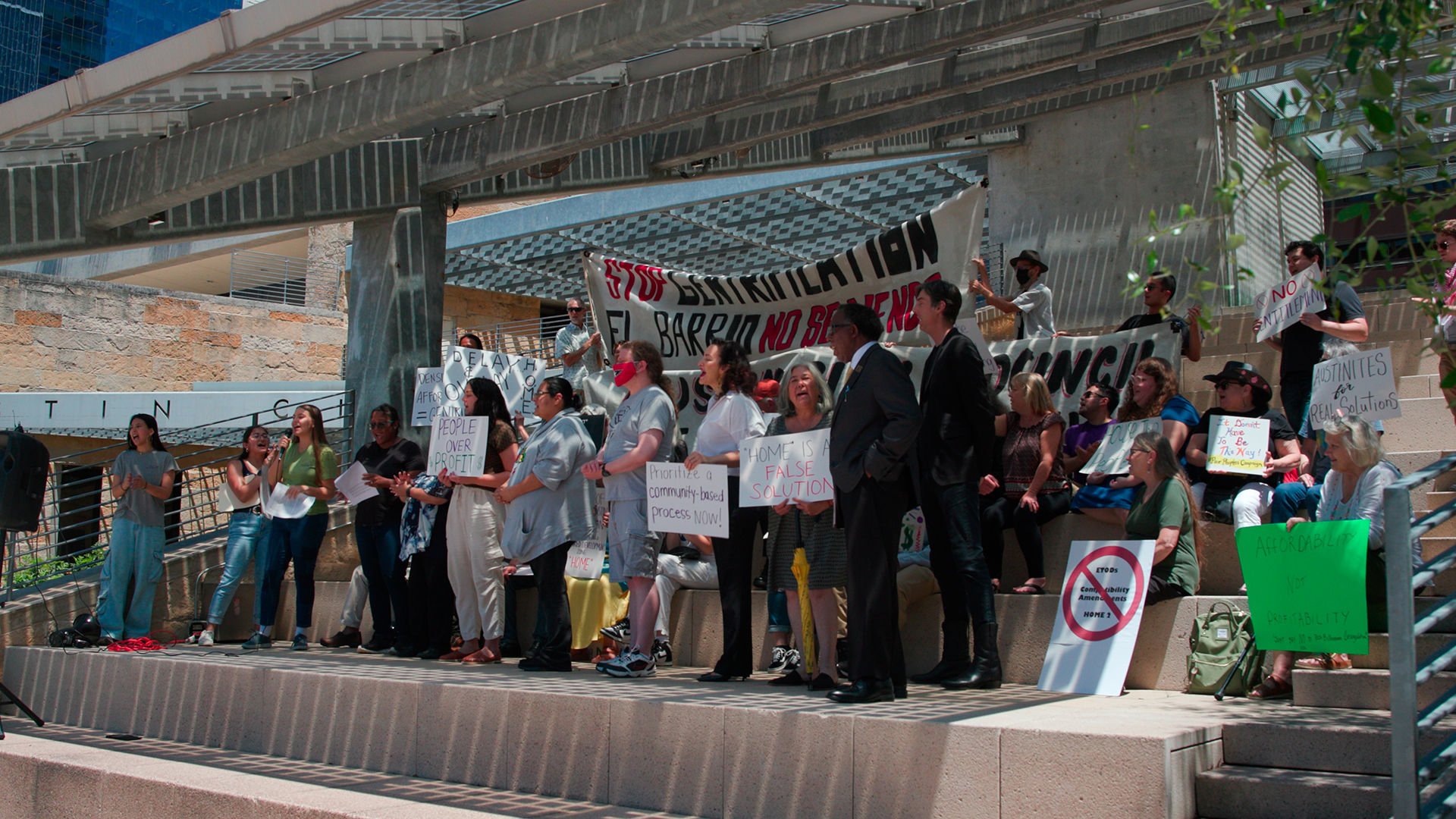
East Austin organizers push for equity/anti-displacement overlay to address affordability
This article was originally published by the Austin Monitor. To see the original post, click here.
A coalition of community groups representing East Austin is pushing City Council to require new infill residences built on smaller lots in the Eastern Crescent be made affordable for longtime residents at risk of being displaced due to the rising cost of living.
Prior to Council’s recent passage of the HOME 2 slate of land use and policy changes, the group known as Community Powered ATX held a press conference and put out a call for the creation of an equity/anti-displacement overlay for communities at increased risk of displacement and gentrification because of the move to increase housing density. The group’s leaders worry that the ability to build three homes on lots that previously held one home will attract developers and speculators looking to capitalize on the popularity of the Austin housing market.
Whether the new housing is used for permanent homes for new residents or as short-term rental units, the group said existing affordable housing is at risk along with large swaths of East Austin. The Eastern Crescent includes the parts of Travis County where many low-income Austin residents have been displaced to by rising costs in the more central parts of town: central East Austin, Colony Park, Del Valle, Dove Springs, Montopolis and Rundberg.
“A lot of the existing affordable housing has been destroyed to make way for luxury housing to be built instead. Just by building an intense amount of luxury development, the increase in property taxes drives people out, from low-income homeowners to renters and unhoused folks,” said Alexia Leclercq, an organizer with Community Powered ATX.
Leclercq said the overlay based on economic factors is a policy tool that is seen as legally valid, with academic research such as the 2018 Uprooted report pointing toward the areas where the practice of requiring affordable single-family homes could be most effective.
“The overlay would essentially put in protections to prevent this mass displacement through different requirements of the affordability of the housing that needs to be built,” she said. “It’s like how a density bonus works. You would require a certain amount of housing to be affordable at a certain percentage of median family income.”
Amendments included in the passage of the HOME 2 resolutions and ordinance changes included a call to study how an equity overlay could work. Community Powered ATX is also in support of a resolution on this week’s Council agenda that looks to address the need for gap financing to help current residents secure the funding they would need to construct accessory dwelling units on their property to produce more income.
Some members of the coalition met recently with Council members Vanessa Fuentes, José Velásquez and Chito Vela and expect to have another meeting in June to discuss a path forward for the overlay and other issues related to displacement.
Monica Guzmán, policy director for Go Austin/Vamos Austin, said without specific affordability requirements included in the new pro-density policies, the eastern portion of the city will be changed dramatically with longtime residents being forced to move north, east and south because of rising housing costs and property taxes.
“Maybe five years, more than likely 10, but at some point down the road, we’re going to see more and more predominantly white homeowners and property owners. We’re living where it used to be mainly brown and Black folks. Basically, just increased gentrification over time,” she said. “Austin is going to look so different and areas are going to be basically whiter. Not that there aren’t people of color who have money and can afford it, but they are far outnumbered – and we will probably see more short-term rentals, Airbnbs, speculators and LLCs buying up property.”
Community journalism doesn’t happen without community support.
Got story ideas, advice on how we can improve our reporting or just want to know more about what we do? Reach out to us at news@klru.org.
And if you value this type of reporting, then please consider making a donation to Austin PBS. Your gift makes the quality journalism done by the Decibel team possible. Thank you for your contribution.
More in Politics:
See all Politics posts





Contact Us
Email us at news@klru.org